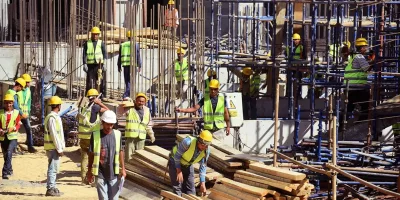Report Egypt: Detention watch 2 (March-April 2017)
Following CfJ’s first report on human rights violations against detainees in Egyptian detention places for the first two months of 2017 (January and February) Detention Watch project proceeds in this issue to provide an analytical overview of the human rights situation in Egyptian detention places – formal and informal – while holding the authorities accountable of their obligations mandated by law (Egyptian constitution, Egyptian criminal law, and international human rights treaties Egypt has signed).
The end objective of such periodic reports is to
- inform national and international stakeholders of the ongoing conditions inside places of detention,
- enable families of victims and detainees to factually establish claims of illegal and inhumane circumstances that are endured,
- engage or demand engagement of authorities into a dialogue that can formulate coherent and consistent strategies and legislations that put an end to such violations,
- support prevention of impunity of human rights violations in places of detention,
- contribute to the transitional justice mechanisms that this country will or might employ at a later stage
The methodology of this activity primarily entailed monitoring and observing violations being reported formally and informally on a day-to-day basis. After collecting the primary data, the project team employed the verification tool; a step that is regrettably overlooked by many other human rights organizations reporting in the same field due to difficulties establishing contact, time consumption and risks associated. Authenticating the data collected is a crucial step to safeguard the credibility of the data presented, and to be able to legally hold the violators accountable with proof. Accordingly, it was imperative for Detention Watch to communicate with the families of each detainee who suffered a violation and verify all the information needed. All the gathered data whether monitored or verified were finally compiled in this report with a contextual and statistical analysis; while shedding light on the challenges and limitations handled while working on the material.
Key findings that Detention Watch reached can be summarized as follows:
- 23 cases of violations were monitored in January 2017, and 24 cases in February 2017
- Out of those 47 cases, a 13% rate of medical negligence cases leading to death was recorded
- Cases of extrajudicial killings account up to 9% of total violations
- Al Aqrab prsion – just like the first two months of 2017 – remains the detention place with the highest number of violations reported across all of Egypt. 19% of the cases of medical negligence and torture violations took place inside AlAqrab prison both in March and April 2017.
- Out of the 47 cases monitored, 21 cases were verified (nearly half)
- Prisons category come first with highest violations recorded – mainly medical negligence, followed by state security premises (informal detention place) where enforced disappearance and torture scored highest, after which comes and central security forces camps (informal detention place) with records of torture and poor detention conditions
- Geographically, Cairo and ElBehira governorate set with highest records of violations, followed by ElMenoufia and Alexandria.
- Detention places with highest records of violations can be viewed in the following order: ALAqrab Prison (Cairo), then Borg AlArab Prison (Alexandria) then State Security Premises (Cairo), then AlAbaadeya Prison (ElBehira) and Tora Prison (Cairo)
- The most targeted age group is youth (16 – 30), followed by an older generation (31 – 50), then finally the elderly (above 50).
- Most of the arrests were done by both police forces and state security officers.
- 95% of the cases that were subjected to violations were also subjected to enforced disappearance, mostly ranging from a period of 1 week up to 1 month of time.
- Almost half of the victims of violations (45%) didn’t go into court yet where they haven’t faced any charges but are being held pre-trial
To view the report click here

![MAR APR REPORT[1051]_Page_01 Report Egypt: Detention watch 2 (March-April 2017)](https://www.cfjustice.org/wp-content/uploads/2017/06/MAR-APR-REPORT1051_Page_01-150x150-1000x500.jpg)




